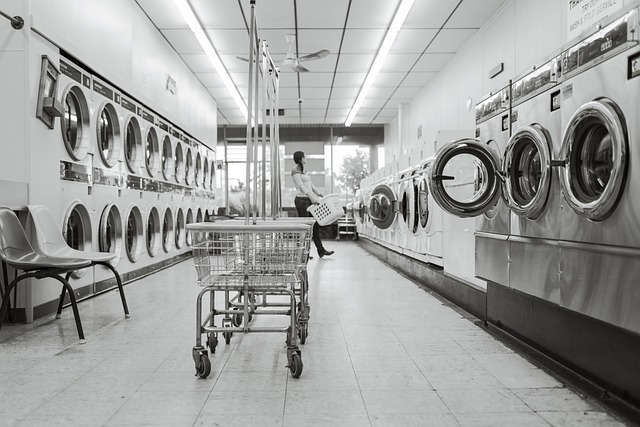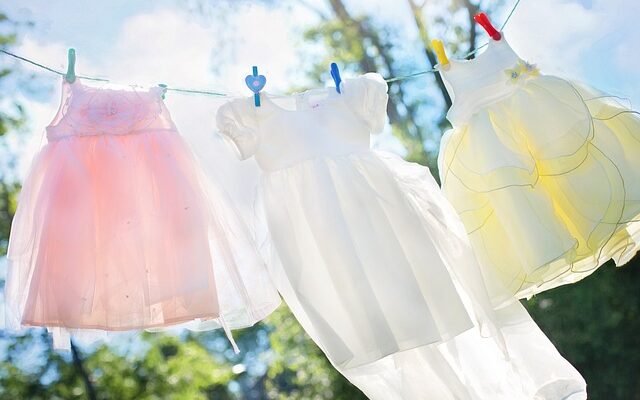Common reasons why your washing machine may not be getting your clothes clean
Common reasons why your washing machine may not be getting your clothes clean can be frustrating, but they can usually be resolved with a few simple solutions. One common reason is overloading the machine. When you cram too many clothes into the washer, there isn’t enough room for them to move around and get properly cleaned. This can result in dirty spots or an overall lack of cleanliness. To fix this issue, try reducing the load size and dividing the laundry into smaller batches.
Another possible reason for inadequate cleaning is not using enough detergent. If you don’t add enough detergent, the machine may not be able to effectively remove dirt and stains from your clothes. Be sure to follow the manufacturer’s recommended amount of detergent for your specific washing machine model.
Additionally, using the wrong type of detergent can also affect the cleaning performance. Different fabrics and stains require different types of detergent. Using a regular detergent for heavily soiled clothes or using a high-efficiency (HE) detergent for a non-HE machine can result in unsatisfactory cleaning results. Always use the appropriate detergent for your laundry needs.
Moreover, neglecting to clean the washing machine itself can contribute to poor cleaning results. Over time, detergent residue, lint, and other debris can build up inside the machine, affecting its ability to clean effectively. Regularly cleaning the drum, detergent dispenser, and filters can help ensure optimal performance.
Lastly, hard water with mineral deposits can impact the cleaning process. Hard water contains high levels of minerals such as calcium and magnesium, which can leave a film on clothes, making them appear dull and dirty. Consider using a water softener or adding vinegar to the rinse cycle to combat hard water issues.
By addressing these common issues, you can improve the cleaning performance of your washing machine and enjoy fresh, clean clothes every time.
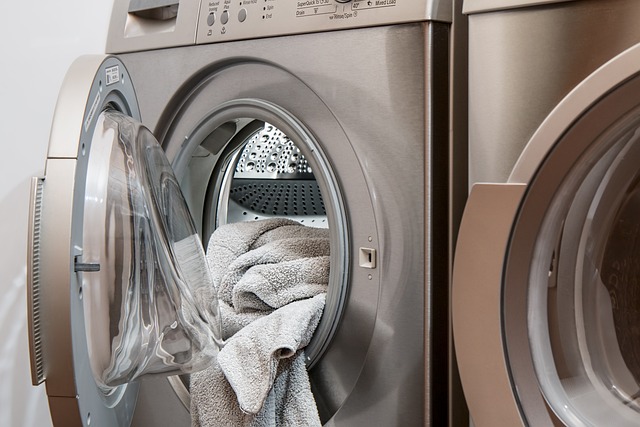
Troubleshooting tips to improve the cleaning performance of your washing machine
Title: Troubleshooting Tips to Boost Your Washing Machine’s Cleaning Performance
Introduction (45 words):
Is your washing machine not cleaning as effectively as it used to? Don’t worry, we’ve got you covered! In this article, we will share some expert troubleshooting tips to help you improve the cleaning performance of your washing machine. Say goodbye to dingy clothes and hello to sparkling clean laundry!
1. Check for Proper Loading (50 words):
Start by ensuring your washing machine is not overloaded or underloaded. Overloading prevents adequate water circulation and agitation, leading to inadequate cleaning. Conversely, underloading can cause excessive water usage and energy wastage. Find the right balance and load your machine properly to optimize cleaning efficiency.
2. Sort your Laundry (50 words):
Sorting your laundry based on fabric type, color, and level of dirtiness is essential. Grouping similar fabrics together allows for more efficient cleaning, while sorting by color prevents color bleeding. Additionally, pre-treating heavily soiled or stained garments before washing can significantly improve the cleaning performance of your machine.
3. Select the Right Wash Cycle and Temperature (50 words):
Choosing the appropriate wash cycle and temperature is crucial. Most modern washing machines provide various wash programs tailored to specific fabric types and cleaning requirements. Use the appropriate cycle for delicate items, heavily soiled clothes, or quick cycles for light loads. Adjust the temperature accordingly to remove tough stains or preserve delicate fabrics.
4. Use the Right Amount of Detergent (50 words):
Too much or too little detergent can affect your machine’s cleaning performance. Follow the manufacturer’s guidelines for detergent usage, considering the hardness of your water and the soil level of your laundry. Overdosing can cause excessive suds that hinder proper cleaning, while using too little may result in subpar cleaning results.
Conclusion (45 words):
By following these troubleshooting tips, you can enhance the cleaning performance of your washing machine. Proper loading, sorting, selecting the right wash cycle and temperature, and using the correct amount of detergent are key factors. Say hello to cleaner, fresher clothes that will make you proud!
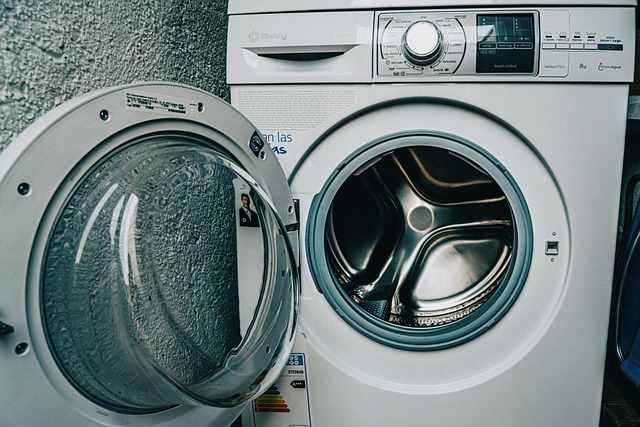
Frequently asked questions (FAQs) about washing machine cleaning issues
Use clear and concise language
Include relevant keywords
Provide accurate and helpful information
Structure the content with headings and subheadings
Include links to related resources or products
Address common concerns and provide practical solutions
Make the content easy to scan and navigate
FAQ 1: How often should I clean my washing machine?
Cleaning your washing machine regularly is essential to maintain its performance and prevent odors. As a general rule, it is recommended to clean your machine at least once every three months. However, if you live in an area with hard water or frequently wash heavily soiled clothes, you may need to clean it more often. By sticking to a regular cleaning schedule, you can remove detergent residues, mold, and mildew, prolonging the life of your washer.
FAQ 2: How do I clean my washing machine?
Cleaning your washing machine is a simple process that can be done using common household items. Start by running a hot water cycle with a cup of white vinegar to remove any buildup and odors. Next, wipe down the drum, door gasket, and detergent dispenser with a mixture of warm water and mild detergent. For stubborn stains or mold, use a toothbrush dipped in vinegar or bleach to scrub the affected areas. Finally, run another hot water cycle with baking soda to neutralize any remaining odors.
FAQ 3: Why does my washing machine smell?
A foul odor coming from your washing machine is a common issue that is often caused by the buildup of detergent residue, mold, or mildew. This can occur if the machine is not cleaned regularly or if you frequently wash at low temperatures. To eliminate the smell, thoroughly clean your machine using the steps mentioned in FAQ 2. Additionally, make sure to leave the door open after each use to allow the interior to dry, preventing the growth of mold and mildew. Using high-efficiency (HE) detergent and avoiding excessive use can also help in preventing future odors.
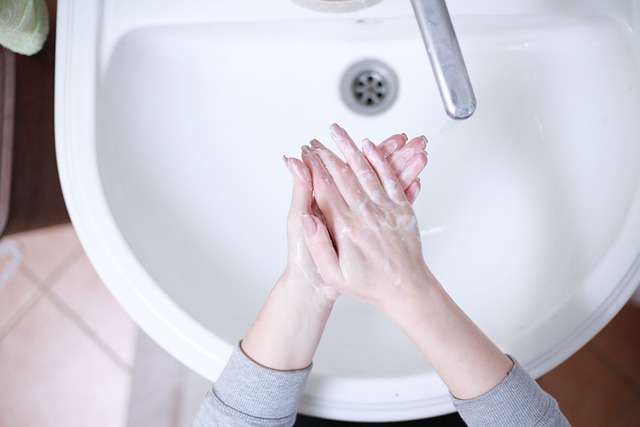
Factors that may affect the cleaning efficiency of your washing machine
Factors that may affect the cleaning efficiency of your washing machine can be classified into two main categories: internal factors and external factors. Internal factors refer to the components and settings of the washing machine itself, while external factors pertain to the environment in which the machine operates.
Internal factors that can impact the cleaning efficiency include the age and condition of the washing machine. Older machines may not have the latest technology and features that optimize cleaning performance. Additionally, wear and tear on various components, such as agitators or drum bearings, can diminish their effectiveness.
Another internal factor is the capacity of the washing machine. Overloading the machine with too many clothes can prevent proper agitation and water circulation, resulting in inadequate cleaning. Similarly, underloading the machine may not provide sufficient friction for effective stain removal.
The water temperature and selection of detergent are also crucial internal factors. Hot water can enhance the cleaning power of detergents, while cold water may not activate them fully. Moreover, using the wrong type or excessive amount of detergent can leave residues on clothes or inside the machine, interfering with the cleaning process.
External factors that impact cleaning efficiency include the hardness of the water supply. Hard water contains minerals that can interfere with detergent performance, leaving behind soap scum or reducing the effectiveness of stain removal.
Furthermore, the cleanliness of the laundry itself can affect the cleaning efficiency. Pre-treating or pre-soaking heavily soiled garments can help loosen dirt and stains before they enter the washing machine.
Lastly, the regular maintenance and cleaning of the washing machine itself can contribute to its cleaning efficiency. Regularly removing lint and debris from the lint trap or drain filter, as well as periodically running cleaning cycles with vinegar or specialized cleaners, can prevent buildup and ensure optimal performance.
By considering and addressing these internal and external factors, you can maximize the cleaning efficiency of your washing machine, prolong its lifespan, and achieve cleaner, fresher laundry.
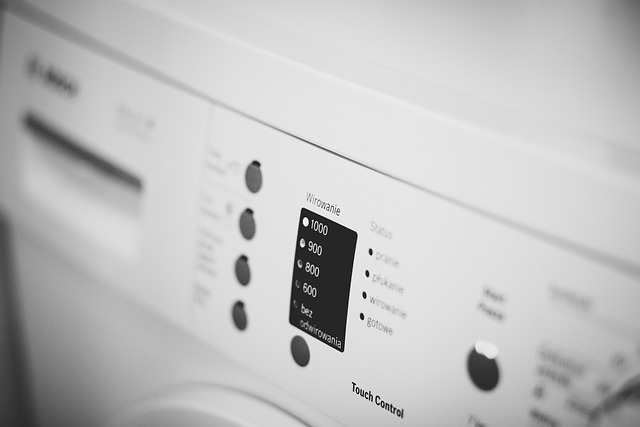
Additional steps to consider for better cleaning results with your washing machine
Additional Steps to Consider for Better Cleaning Results with Your Washing Machine
Keeping your washing machine clean is essential to ensure that your clothes come out fresh and free from any unpleasant odors. In addition to regular cleaning routines, there are a few additional steps you can take to achieve better cleaning results with your washing machine. These steps will not only improve the efficiency of your machine but also extend its lifespan.
First and foremost, it is crucial to clean the detergent dispenser regularly. Over time, soap residue can build up, leading to mold and mildew growth. Remove the dispenser tray and soak it in warm water mixed with vinegar or a mild detergent. Scrub away any grime or residue and rinse thoroughly before reinstalling it in the machine.
Secondly, consider using a washing machine cleaner on a monthly basis. These cleaners are specifically designed to remove built-up residue, detergent scum, and any foul-smelling odors. Simply follow the instructions on the packaging for the best results. This step will ensure that your machine is working its best and providing you with perfectly clean clothes.
Another important step is to clean the rubber door seal regularly. This area is prone to collecting dirt, debris, and mold. Wipe it down with a mixture of vinegar and water, paying close attention to the folds and crevices. Dry it thoroughly afterward to prevent any moisture from lingering.
Additionally, it is vital to clean the lint filter after each wash. Built-up lint can reduce the efficiency of your machine and even pose a fire hazard. Locate the filter, typically found near the door or at the bottom of the machine, and remove any lint or debris.
Lastly, consider leaving the door and detergent drawer open after each wash to allow for proper ventilation and drying. This will prevent the growth of mold and mildew, ensuring that your machine stays fresh and clean.
By incorporating these additional steps into your regular cleaning routine, you can achieve better cleaning results with your washing machine. Your clothes will come out smelling fresh and looking their best, while your machine will remain efficient and last longer. Follow these suggestions and keep your washing machine in optimal condition for years to come.
